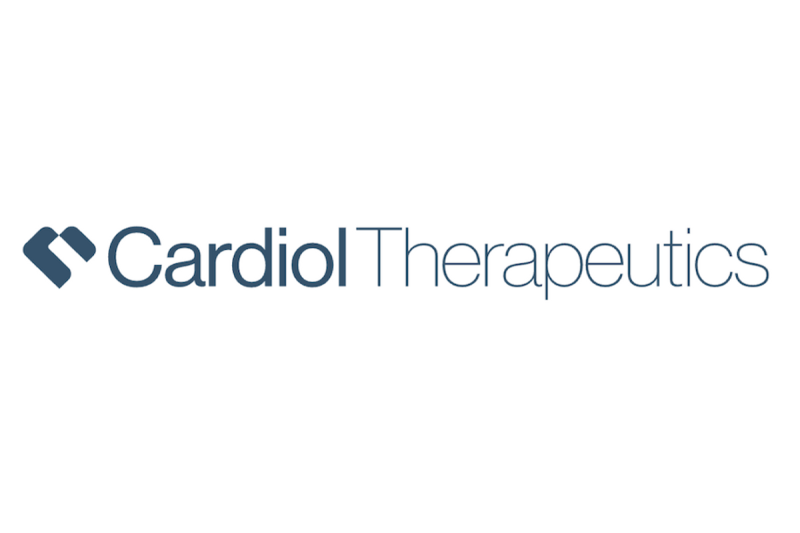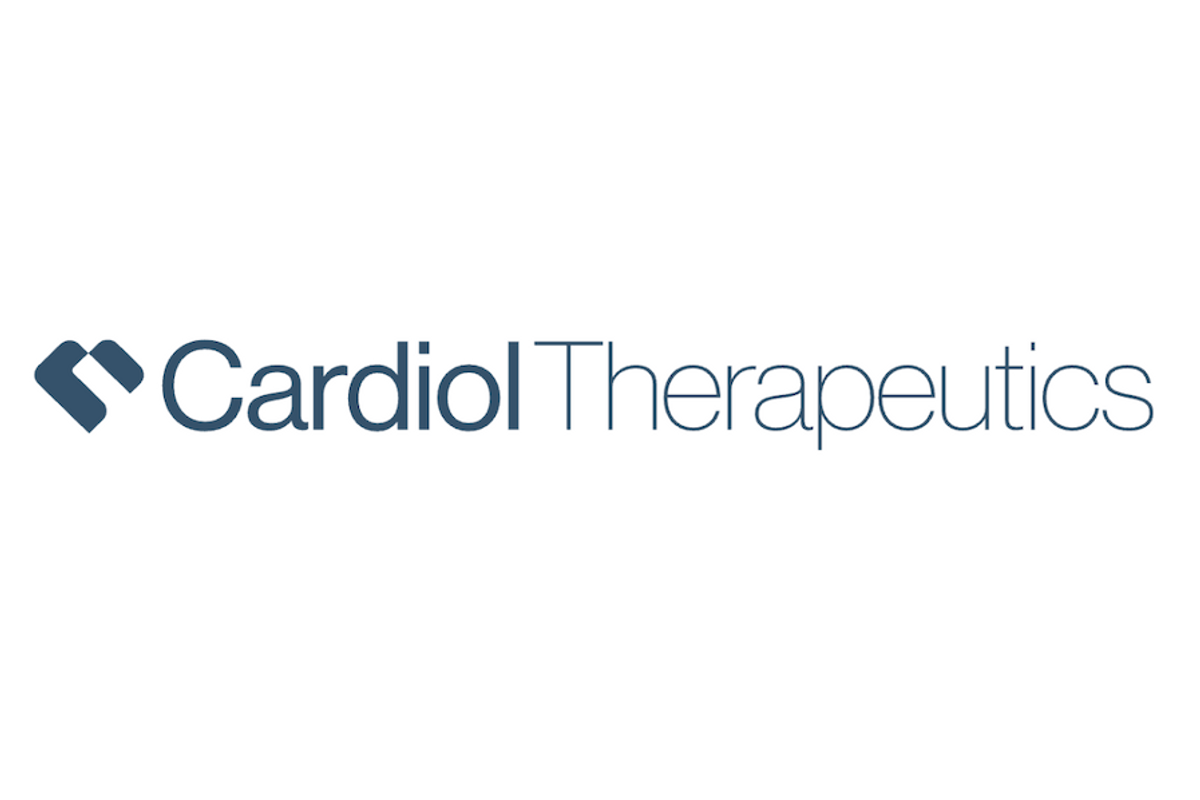

Investor Insight
Cardiol Therapeutics is positioned with a late-stage lead asset, multiple orphan indications, strong clinical proof-of-concept data, and a differentiated non-immunosuppressive approach to inflammatory heart disease. The company’s 2025–2026 catalysts – MAVERIC Phase III enrollment progress, full ARCHER data, and CRD-38 clinical initiation – are key value drivers in large and underserved cardiovascular markets.
Overview
Cardiol Therapeutics Inc. (NASDAQ:CRDL,TSX:CRDL) is a clinical-stage life sciences company focused on the research, development, and commercialization of innovative anti-inflammatory and anti-fibrotic therapies for the treatment of heart disease. The company’s programs target serious, often life-threatening cardiovascular conditions for which there are limited or no approved treatments, including recurrent pericarditis, acute myocarditis, and heart failure.
Cardiol’s therapeutic approach centers on modulating inflammasome pathway activation—a central driver of inflammation and fibrosis in the heart. This is achieved through pharmaceutically manufactured cannabidiol formulations developed under cGMP standards. Cannabidiol has been shown in preclinical and clinical studies to down-regulate inflammatory mediators (e.g., IL-1, IL-6) and preserve cardiac structure and function, offering the potential for disease-modifying, non-immunosuppressive treatment options.

The company’s lead oral drug candidate, CardiolRx , is in late-stage clinical development:
, is in late-stage clinical development:
- Phase II ARCHER trial for acute myocarditis, a leading cause of sudden cardiac death in people under 35.
Cardiol is also advancing CRD-38, a proprietary subcutaneous cannabidiol formulation for heart failure. IND-enabling studies are underway following compelling preclinical results showing cardioprotection through preservation of mitochondrial function and prevention of cardiac remodeling.
Company Highlights
- Clinical-stage life sciences company developing therapies for heart disease.
- Late-Stage Pipeline: Lead oral drug candidate, CardiolRx
 , in the ongoing Phase III MAVERIC trial for recurrent pericarditis (RP).
, in the ongoing Phase III MAVERIC trial for recurrent pericarditis (RP). - Strong Market Potential: Current US revenue for third-line RP therapy is approximately $500 million, with analyst forecasts’ exceeding $1 billion by 2028.
- Validated Target: Focused on inflammasome activation, implicated in multiple cardiac conditions.
- World-class Collaborations: Long-standing collaborations and partnerships with leading international cardiovascular research centers.
- Near-term Milestones – Advance MAVERIC Phase III enrollment (50% targeted H2 2025, full enrollment H1 2026); present full Phase II ARCHER trial results for acute myocarditis in H2 2025; complete IND-enabling work and initiate Phase I for CRD-38 in heart failure.
Key Projects
MAVERIC Program – Recurrent Pericarditis

What it is: A pivotal clinical program testing CardiolRx in patients with recurrent pericarditis, a painful and debilitating inflammation of the membrane around the heart that often returns despite prior treatments. The condition can cause severe chest pain, shortness of breath, and repeated hospitalizations.
in patients with recurrent pericarditis, a painful and debilitating inflammation of the membrane around the heart that often returns despite prior treatments. The condition can cause severe chest pain, shortness of breath, and repeated hospitalizations.
Why it matters: Current third-line therapy is costly, immunosuppressive and associated with a high recurrence rate after discontinuation. CardiolRx offers the potential for a non-immunosuppressive, disease-modifying option.
offers the potential for a non-immunosuppressive, disease-modifying option.
Status:
- Completed MAvERIC-Pilot Phase II: Rapid and durable reductions in pain and inflammation sustained over 26 weeks; majority of patients recurrence-free during extension.
- Phase III MAVERIC trial: Multinational, double-blind, placebo-controlled study enrolling 110 high-risk patients across ~20 sites in North America and Europe. Primary endpoint: recurrence-free rate at 24 weeks after IL-1 blocker discontinuation.
ARCHER Trial – Acute Myocarditis

What it is: A global Phase II trial evaluating CardiolRx in acute myocarditis, an inflammatory heart muscle disease and a major cause of sudden cardiac death in people under 35.
in acute myocarditis, an inflammatory heart muscle disease and a major cause of sudden cardiac death in people under 35.
Why it matters: There are no FDA- or EMA-approved drugs for acute myocarditis. Current care is supportive, and many patients develop chronic heart problems.
Status:
- Enrolled 109 patients at 34 sites across five countries; completed in Q4 2024.
- Topline results (Q3 2025) showed notable improvements in heart muscle health (extracellular volume, LV mass) and confirmed safety/tolerability.
- Full results to be presented at a scientific meeting in H2 2025.
Heart Failure Program – CRD-38
What it is: Development of a subcutaneous cannabidiol formulation for heart failure, including heart failure with preserved ejection fraction (HFpEF), a condition with limited treatment options and high mortality.
Why it matters: Heart failure affects over 64 million people globally, with high hospitalization and death rates; inflammation and fibrosis play key roles in disease progression.
Status:
- IND-enabling studies underway; Phase I trial planned after regulatory submission.
- Preclinical research shows CRD-38 protects heart muscle cells, preserves mitochondrial function, and prevents remodeling and inflammation.

Management Team
David Elsley – President, Chief Executive Officer, and Director
David Elsley is the founder and former president and CEO of Vasogen. He has more than 30 years’ experience developing, financing, and managing corporate development of life sciences companies.
Dr. Andrew Hamer – Chief Medical Officer and Head of Research and Development
Dr. Andrew Hamer has an MBChB degree. Hamer is the former executive director at Amgen, responsible for leading global development of Repatha®. Hamer is the former chief cardiologist at Nelson Hospital, New Zealand. He has over 19 years of experience practicing cardiology and internal medicine.
Chris Waddick – Chief Financial Officer and Director
Chris Waddick has an MBA degree, is a chartered professional accountant, and is a certified management accountant. Waddick has over 30 years of experience in financial and executive roles in the biotechnology and energy industries. Waddick is the former chief financial officer and chief operating officer of Vasogen Inc.
Bernard Lim – Chief Operating Officer
Bernard Lim has over 30 years of experience in the life sciences industry, spanning biotechnology, diagnostics, medical devices, and high-technology companies. Lim is the founder and CEO of a highly successful drug delivery company that he led from research and development through to commercialization, and facilitated its eventual acquisition by Eli Lily. Lim is a chartered engineer per UK standards and is a member of the Institution of Engineering and Technology.
Andrea B. Parker – Senior Director of Clinical Operations
Dr. Andrea Parker is the former chief scientific officer at Peter Munk Cardiac Center, University Health Network. Parker is a clinical epidemiologist with more than 30 years’ experience in clinical trials design, management, and execution in industry and academic settings.
John A. Geddes – Vice-President, Corporate Development
John Geddes has over 25 years of experience in the healthcare industry, comprising roles within pharmaceutical, biotechnology, clinical diagnostics, and life science research technology companies. Geddes has an MBA degree and is the former corporate senior director of business development at Luminex Corporation, a DiaSorin Company.
Anne Tomalin – Director of Regulatory and Quality
Anne Tomalin is the founder of CanReg and TPIreg, regulatory firms previously sold to Optum Insight and Innomar Strategies, respectively. Tomalin is an expert in regulatory affairs in Canada, the United States, and Europe.
Board of Directors
Guillermo Torre-Amione – Chairman
Guillermo Torre-Amione is the president of TecSalud academic medical center and school of the Instituto Tecnológico y de Estudios Superiores de Monterrey (ITESM), Mexico. Torre-Amione is the former director of Cardiac Transplantation at the Houston Methodist DeBakey Heart & Vascular Center.
Jennifer M. Chao – Director
Jennifer M. Chao has over 25 years of experience in the biotech and life sciences industries focused primarily on finance and corporate strategy. Chao is managing partner of CoreStrategies Management, a company she founded in 2008 to provide transformational corporate and financial strategies to biotech/life science companies for maximizing core valuation.
Peter Pekos – Director
Founder of Dalton Pharma, Peter Pekos has broad experience in research, development, and commercialization of pharmaceuticals, products, and services.
Colin Stott – Director
Colin Stott has over 30 years of experience in pre-clinical and clinical development, with specific expertise in the development of cannabinoid-based medicines. Stott is the chief operating officer of Alterola Biotech Inc. and the former scientific affairs director, international, and research and development operations director for GW Pharmaceuticals, a world leader in the development of cannabinoid therapeutics.
Teri Loxam – Director
Teri Loxam has over 25 years of experience in the pharmaceutical, life sciences and TMT industries with diverse roles spanning strategy, investor relations, finance and communications. Loxam is chief financial officer of Compass Pathways plc (Nasdaq:CMPS), a biotechnology company dedicated to accelerating patient access to evidence-based innovation in mental health.
Timothy Garnett – Director
Timothy Garnett is the chair of Ophirex and director of Maplight Therapeutics. He is a pharmaceutical industry executive with over 30 years’ experience, including two decades at Eli Lilly and Company, where he served as Chief Medical Officer from 2008 until his retirement in 2021. During his tenure at Eli Lilly, he led the successful development of therapeutics in women’s health, endocrinology, and neuroscience, resulting in multiple commercial launches globally.
Scientific Advisory Board
Dr. Paul Ridker is director of the Center for Cardiovascular Disease Prevention, a translational research unit at Brigham and Women’s Hospital in Boston (BWH). A cardiovascular medicine specialist, he is also the Eugene Braunwald Professor of Medicine at Harvard School of Medicine (HSM). Ridker received his medical degree from HSM and then completed an internal medicine residency and a cardiology fellowship at BWH. He is board certified in internal medicine. Ridker’s clinical interests include coronary artery disease and the underlying causes and prevention of atherosclerotic disease. He is the author of over 900 peer-reviewed publications and reviews, 64 book chapters, and six textbooks related to cardiovascular medicine.
Dr. Bruce McManus is a professor emeritus of the Department of Pathology and Laboratory Medicine at the University of British Columbia. He has served as CEO of the Center of Excellence for Prevention of Organ Failure (PROOF Center), director of the UBC Center for Heart and Lung Innovation, and scientific director of the Institute of Circulatory and Respiratory Health, CIHR. McManus received BA and MD degrees from the University of Saskatchewan, an MSc from Pennsylvania State University, and a PhD from the University of Toledo. McManus pursued post-doctoral fellowships at the University of California, Santa Barbara in environmental physiology and at the National Heart, Lung, and Blood Institute in Bethesda. McManus served as MD in cardiovascular and pulmonary pathology, and completed residency training at the Peter Bent Brigham Hospital, Harvard University, in Internal Medicine and Pathology.
Dr. Joseph Hill is a professor of internal medicine and molecular biology, chief of cardiology at UT Southwestern Medical Center, in Dallas, and is the director of the Harry S. Moss Heart Center. Hill holds both the James T. Willerson, MD, distinguished chair in cardiovascular diseases, and the Frank M. Ryburn Jr. Chair in Heart Research. He graduated from Duke University with an MD and a PhD in 1987. Hill’s PhD dissertation research was in the field of cardiac ion channel biophysics. He then worked for five years as a postdoctoral fellow at the Institut Pasteur in Paris, studying central and peripheral nicotinic receptors. He next completed an internal medicine internship and residency, as well as a clinical cardiology fellowship, at the Brigham and Women’s Hospital, Harvard Medical School.